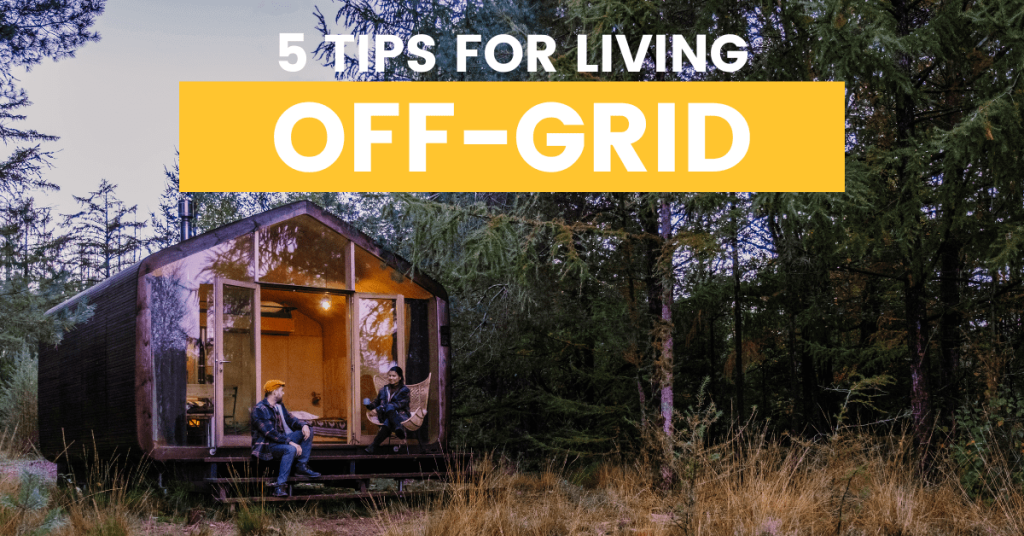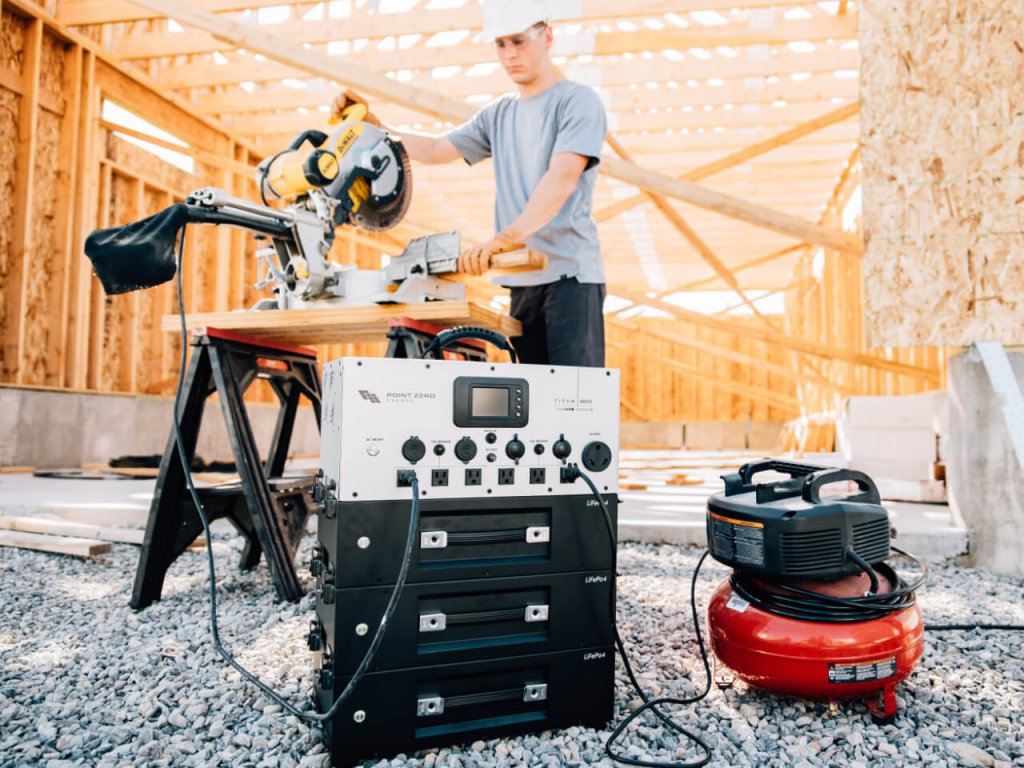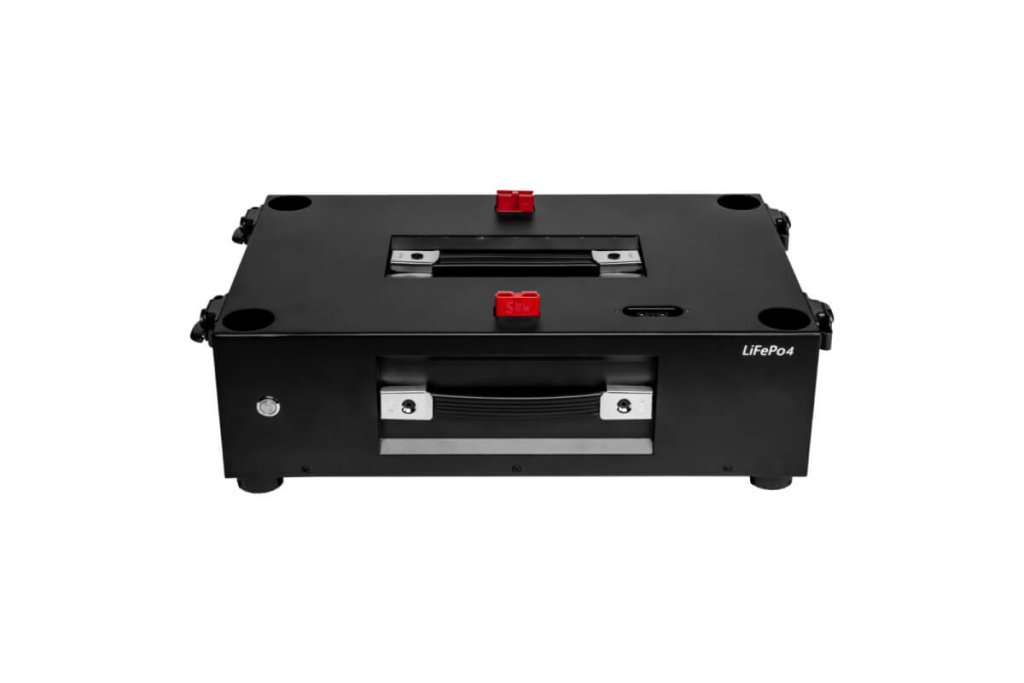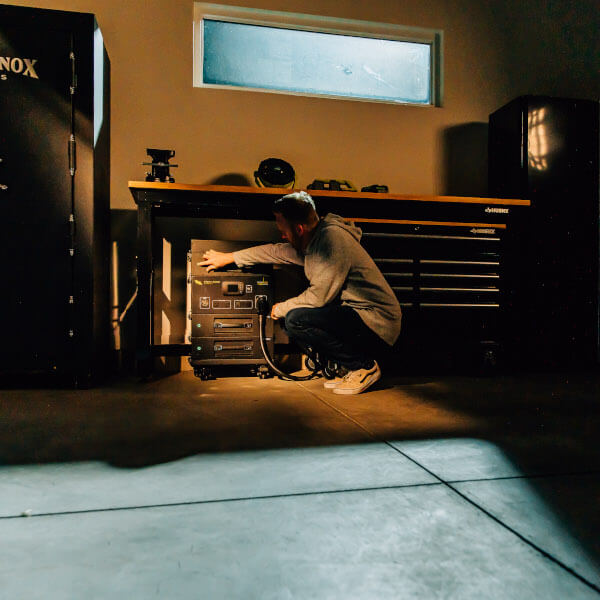Going off-grid is an exciting adventure, but it can also be a bit daunting. Whether you’re a seasoned RVer or just starting out, it’s important to be prepared and make sure you have the right tools and equipment to make the most of your off-grid experience. In this blog post, we’ll be sharing five secrets to help you get started on your off-grid journey.

What is a portable solar generator? A portable solar generator is the backbone of any off-grid setup. Not only will it provide you with power when you need it, but it’s also an environmentally friendly and cost-effective option. A good generator should be easy to use, easy to transport, and have a long battery life. Look for a generator that has a high-capacity battery and a built-in inverter that can convert the DC power from the battery to AC power for your appliances. The Titan Boost portable solar generator has a 2,500 watt hour LFP battery and a 3,000 watt pure sine wave inverter, making it extremely powerful, efficient and a great option for going off grid.

Point Zero Energy Titan Solar Generator
When living off the grid, it is crucial to invest in high-quality solar panels. The more solar panels you have, the more power you can generate. We recommend using monocrystalline solar panels, which are the most efficient and durable option. They also have a higher power density, which means they can generate more power in a smaller space. When shopping around for solar panels, look for high-quality solar panels that are durable, efficient and easy to set up.
Efficiency: Look for solar panels with high efficiency ratings. Efficiency is measured by the amount of sunlight that is converted into usable energy. The higher the efficiency rating, the more energy the panel will produce.
Durability: Look for solar panels that are built to last. High-quality panels are made with durable materials that can withstand extreme temperatures and weather conditions. They should also be resistant to corrosion and UV damage.
Wattage: Consider the wattage of the panels you are interested in. The wattage will determine how much energy the panel can produce. For example, a 100-watt panel will produce less energy than a 300-watt panel.
Size and weight: Consider the size and weight of the panels. Larger panels will produce more energy, but they will also be heavier and more difficult to transport. Smaller panels may be more portable, but they will also produce less energy.
Warranty: Look for solar panels that come with a good warranty. A warranty will protect your investment in case anything goes wrong with the panel. Make sure to read the fine print and understand what is covered and for how long.
By considering these factors, you can ensure that you are investing in high-quality solar panels that will provide you with the power you need, when you need it. Whether you’re planning to go off-grid or simply looking to supplement your home’s energy supply, solar panels are an excellent choice. Just make sure to do your research and invest in quality to ensure that you are getting the most out of your investment.

Point Zero Energy Briefcase Solar Panels
A good battery bank is essential for storing the power generated by your solar panels. When it comes to choosing a battery bank for your solar power system, there are a few key factors to consider. One of the most important is the type of battery you choose. Lithium-ion batteries are quickly becoming the preferred choice for many solar power users due to their many advantages.
One of the main benefits of lithium-ion batteries is their high energy density. This means that they can store more energy in a smaller space than other types of batteries, making them ideal for portable solar power systems. They are also lightweight and easy to transport, making them perfect for off-grid living.
Another advantage of lithium-ion batteries is their long lifespan. They can last for many years, even with regular use, making them a cost-effective choice in the long run. They also have a low self-discharge rate, which means they lose less energy over time when not in use.
When looking for a good quality lithium-ion battery bank, there are a few other things to keep in mind. Look for one that has a built-in battery management system (BMS) to help protect the battery from overcharging and over-discharging. It’s also important to choose a battery bank that is well-ventilated, to keep it cool and to prevent overheating.
Overall, lithium-ion batteries are a great choice for a solar power system. They are efficient, long-lasting, and easy to use. With the right battery bank, you can have reliable and convenient power anytime, anywhere.

The Titan’s 2500 watt-hour LFP battery can be expanded by simply “stacking” more battery packs to expand battery capacity. NO NEED TO CONNECT WIRES.
Being mindful of energy consumption is crucial when going off-grid. According to the Department of Energy, heating and cooling account for nearly half of the energy used in a typical home. This means that investing in energy-efficient HVAC systems can significantly reduce your energy consumption. Additionally, appliances such as refrigerators, washing machines, and dryers are also major energy consumers. Look for appliances that have a high Energy Star rating, which indicates that the appliance meets certain energy efficiency standards set by the government.
Lighting is also an area where people can be more energy-efficient. Replacing traditional incandescent bulbs with LED lights can save you up to $75 a year in electricity costs. Furthermore, LED lights have a longer lifespan, which means you will spend less money on replacements. According to the Environmental Protection Agency, if every home in America replaced the five most used bulbs in their household with energy star ones, we would save about eight billion dollars in energy costs.
Another area where people can be more energy-efficient is in water usage. According to the Environmental Protection Agency, each American uses an average of 82 gallons of water a day at home. Installing low-flow showerheads, toilets, and faucets can significantly reduce water consumption. Furthermore, fixing leaks and using water-saving strategies such as collecting rainwater can also help conserve resources.
By being mindful of energy consumption and using energy-efficient appliances and devices, you can significantly reduce your energy usage and make the most of your off-grid experience. Additionally, keeping track of your energy usage with a monitoring system can help you identify areas where you can make improvements.
Going off-grid is not without its challenges and it’s important to have a backup plan in case of emergencies. Have a generator on hand as a backup power source, and be sure to have enough fuel to run it for several days. It’s also a good idea to have a few days’ worth of non-perishable food items such as canned goods, dried fruits and nuts, and instant meals stored. In addition, it’s a good idea to have a supply of clean water, a water filtration system, and water purification tablets on hand. Other emergency preparedness items that should be considered include a first aid kit, flashlights, and a portable radio to stay informed about any potential threats in the area. It’s also important to have a plan for communication with loved ones and emergency services in case of an emergency.
Overall, going off-grid takes some planning and investment, but with the right equipment and mindset, it can be an incredibly rewarding experience. By having access to power anytime, anywhere, you can truly experience the freedom that comes with living off the grid. And with the increasing popularity of portable solar generators, it’s easier than ever to make the switch to off-grid living.


Carol says:
I have a small farm in E. Tennessee, we do all the prepping things, etc. We do have several Solar Generators, Delta Pro, 4Patriots 1800 Gen, and several smaller ones. What we need is a Solar Gen. to run our Well Pump. I’ve read about the Titan 240 SP Power Module at $2,395.00. How many more Add-on do I need to be able to run my well for an hour or two a day?
Point Zero Energy says:
Can you give me more information on your well pump? I need to know how much power it takes, then I can answer your question.